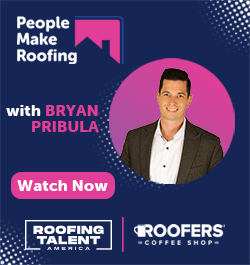Polyiso Insulation Thickness R-Value Chart: Understanding R-Value

What Does R-Value Mean?
A higher R-value means that the insulation will do a better job of holding in conditioned air, whether that’s heat in the winter or cool air in the summer. It’s not about how much heat the insulation retains, but how slowly it allows heat to move through it. The slower, the better.
Most insulation manufacturers will first list their insulation’s R-Value for a one-inch sample, then they’ll give you a chart demonstrating the other R-Values you can achieve if you install a thicker version of their product. Let’s use the R-Value of IKO’s polyiso insulation, EnerfoilTM, as an example.
R-Value Chart for EnerfoilTM Rigid Foam Faced Insulation
Conditioned per ATSM C1289, Test method ASTM C5181,2

1When joints & penetrations detailed appropriately. 2 Stated thermal resistance values are based upon conditioning requirements and test methodology found in ASTM C1289 and ASTM C518 for foil-faced polyisocyanurate insulation. See also Material Data Sheet – MSDS #1511 or MSDS #1911.
The information on this page is based on data considered to be true and accurate based on periodic internal testing and production measurements at time of manufacture. The information offered is solely for the user’s consideration, investigation and verification. Nothing contained herein constitutes or represents a warranty or guarantee for which the manufacturer can be held legally responsible.
At one inch thickness, EnerfoilTM achieves a 6.2 R-Value, or a 1.08 RSI. But what does that mean, and how do researchers determine R-Value?
To compare different insulation products, researchers have to create the exact same conditions and then measure how well the insulation performs. There are a few different methods of doing this, but the simplest is called the Guarded Hot Plate.
For this test, researchers take samples of the insulation that are the exact same size. They place the sample between two plates, one that is hot and one that is cold. Then, the researchers time each sample to see how long it takes for the heat from the hot plate to transfer to the cool plate.
In this experiment, the hot plate is your home and the cool plate is the outdoors. The longer it takes the heat to pass through the insulation, the better.
The Importance of Insulation Thickness
R-Value isn’t just a time measurement though. It takes into account the size of the sample and the overall change of temperature over time, so that you can compare thermal conductivity of materials tested with plates of different temperatures, or even that were tested by other methods. The formula for R-Value is:
BTU / hr x ft2 x °F
In this formula BTU stands for British Thermal Units, hr stands for time lapse in hours, ft2 stands for the exposed area of the sample in square feet and °F stands for change in temperature by degrees Fahrenheit.
That formula is in imperial units. In metric units, the formula looks like this:
M2 x °C/W
In this formula M2 stands for the exposed area of the sample in square metres, °C stands for change of temperature in Celsius and W stands for Watts.
R-Values measured in metric are called RSI values. You should only compare RSI values to other RSI values, and R-Values to other R-Values.
Both versions of the formula take into account the size of the sample and the overall change in temperature that the insulation allows for over time.
Yet, these formulas don’t take into account the insulation’s thickness. The same insulation will hold more heat the thicker it is installed. Eight inches of poor quality insulation may have a higher and better R-Value than one inch of top-quality insulation. So, you need to know an insulation product’s thickness as well as its R-Value in order to compare it to another product.
As a foil-faced polyisocyanurate foam insulation, EnerfoilTM’s R-Value actually more than doubles when it is twice as thick, as you can see from the chart above. Other materials may only have a fifty percent increase in R-Value when their thickness is doubled.
If you have limited space for your insulation, perhaps because you’re building a tiny home or have a pre-existing structure with thin walls, you’ll need to choose a top quality insulator to get a good R-Value. If you have ample space for insulation, you can layer in high-quality insulation to achieve a better R-Value. This way, you may meet environmentally-friendly building standards. The big question is: will that higher R-Value end up saving you in heating costs?
Will A Higher R-Value Insulation Save You Money?
The amount you’ll save on your energy bill from new insulation depends on a few different factors, including:
- Your climate.
- The type and size of your building.
- The amount and quality of insulation you already had.
- How tightly your building is sealed against air leaks.
If you purchase too much insulation, it may cost you more than what you’ll save on your utility bill.
If you’re building a new structure, the amount of insulation you’ll need depends on your climate. Local building code, environmental standards and insulation professionals can offer you guidance about your insulation needs.
Learn more about IKO’s innovative insulation products, or contact us with your insulation questions.






















Comments
Leave a Reply
Have an account? Login to leave a comment!
Sign In